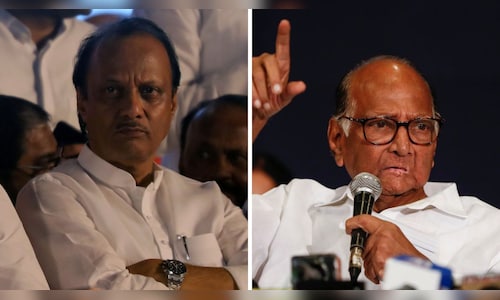The camaraderie between the uncle-nephew duo transcends mere political chatter—it’s been evident in public appearances, on stage, and through phone calls that suggest a deeper bond is still alive despite the political divide. A prime illustration recently occurred during a public event in Pune, where both Pawars shared the stage. There were no sharp remarks or evident tension—only smiles, polite exchanges, and measured camaraderie. This was more than just for show. Observers noted that Sharad Pawar, while critiquing political decisions, refrained from personal attacks on Ajit—a consistent approach he has maintained over the past year.
Recently, a moment that captured the attention of the state’s political circles was when Sharad Pawar personally called Ajit to address an urgent issue affecting farmers in the Pune district. This was not a political maneuver or filtered through bureaucratic routes. Sharad Pawar, a former Union Agriculture Minister and a lifelong advocate for farmers, opted to reach out to Ajit, who currently serves as the state’s Finance and Planning Minister. Sources indicate their conversation was cordial, focusing solely on the water supply issues troubling villagers in Purandar and Baramati regions.
This phone call, though unofficially noted, sparked speculation. Was it merely an old habit of collaboration resurfacing? Or could it be a subtle recognition that, despite their split, effective governance requires cooperation?
Both Sharad and Ajit Pawar attended meetings at the Vasant Dada Sugar Institute, where they appeared at ease with no tension visible. They were seen sitting next to each other, engaged in discussion. Prior to this meeting, reports indicated that they, along with other NCP leaders like Dilip Walse Patil, held a closed-door meeting on the same premises. Recently, the entire Pawar family came together for Ajit’s younger son’s engagement, captured in photographs, adding to the confusion among party workers from both sides. Since the last Lok Sabha and state assembly elections, they have been in opposing camps, leading to personal confrontations—most notably when Ajit had his own wife, Sunetra Pawar, contest against cousin Supriya, the incumbent MP in Baramati. Ajit later acknowledged that this step was unnecessary.
From a political perspective, this softening of relations has not gone unnoticed. In rural Maharashtra, particularly the western region where the Pawar name retains significant influence, this display of maturity is garnering quiet admiration. For the NCP grassroots—caught between loyalty and pragmatism—the image of Sharad and Ajit greeting each other warmly serves as a source of emotional reassurance. It also leaves the door ajar for potential realignments, especially if the Mahayuti alliance faces internal challenges.
Analysts suggest that while a complete political reunion is improbable in the short term, the personal warmth helps preserve the larger Pawar legacy. In many areas of Maharashtra, particularly Baramati, the Pawars are regarded as one extended political family, irrespective of electoral divisions. Voter behavior has also revealed signs of confusion during the Lok Sabha campaign—some supporting Sharad Pawar’s candidate out of loyalty, while simultaneously recognizing Ajit’s developmental work in the region.
Crucially, Sharad Pawar’s restrained public discourse has facilitated this camaraderie’s acceptance without backlash. He has often emphasized that while political ideologies may differ, personal relationships should not suffer. Ajit, too, has avoided personal jabs, frequently referring to Sharad as “saheb” in interviews—indicating respect despite their political gap.
In conclusion, this situation transcends mere familial ties; it embodies political maturity and legacy management. Maharashtra’s political culture often favors sharp confrontations, yet the unfolding Pawar narrative reveals a gradual and careful balancing act between affection and ambition. Whether this camaraderie evolves into a political understanding remains uncertain. For now, it serves as a reminder that in Indian politics—especially within families with deep-rooted legacies—relationships rarely unfold in a straightforward manner.



